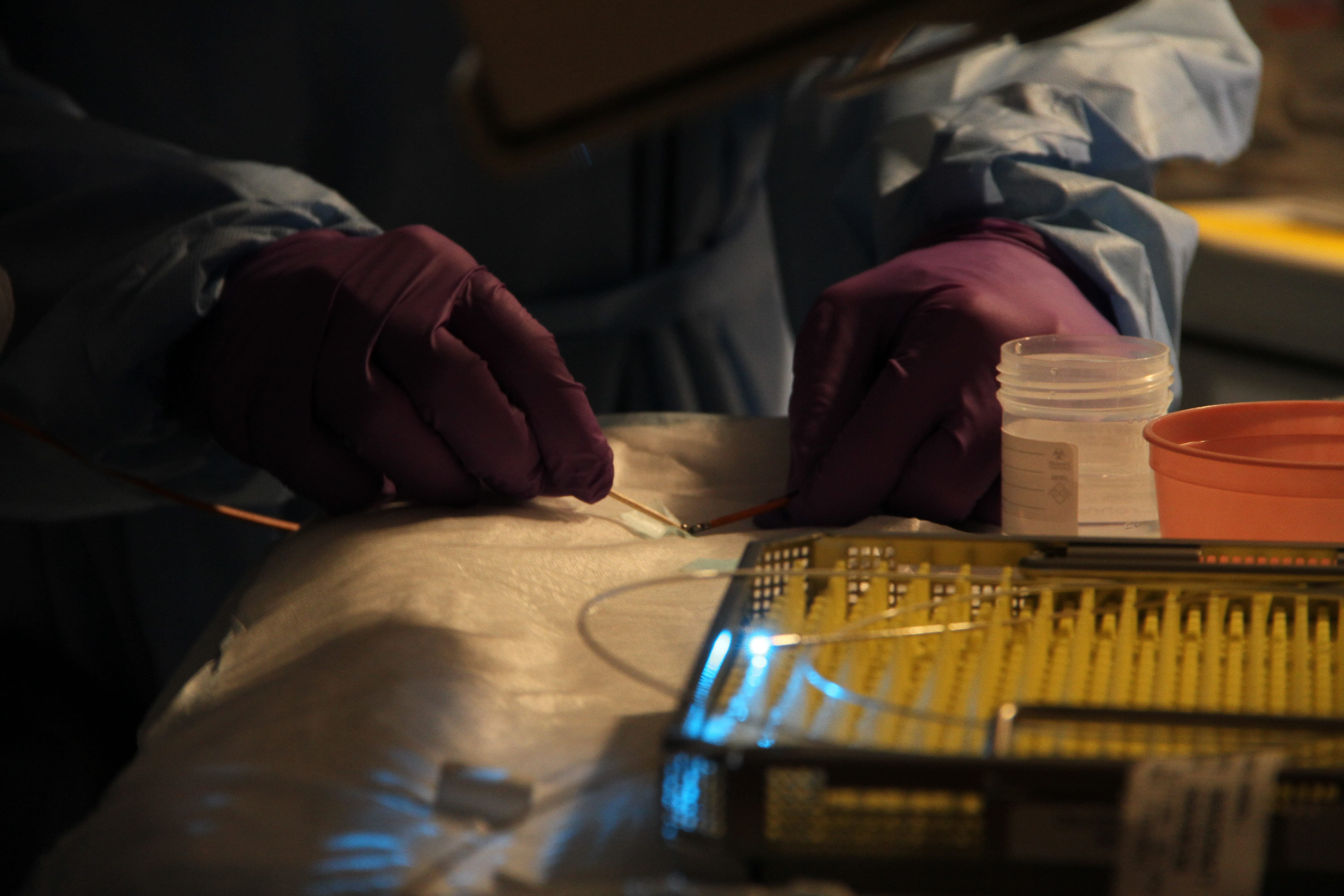September 3, 2013

COLUMBUS, Ohio – A tiny blue laser beam could mean big changes in the way patients with inflammatory bowel disease (IBD) are treated in the future.
Nearly 1.5 million Americans have IBD, a group of inflammatory conditions of the colon and small intestine, and to help keep their condition in check, most patients undergo colonoscopies and have biopsies on a regular basis, which can be expensive. Treating IBD patients costs about $1.2 billion each year in the United States, according to the Crohn’s & Colitis Foundation of America.
But the use of a powerful new laser is making that process much more efficient at The Ohio State University Wexner Medical Center.
Simply by touching the laser to the wall of the intestine, doctors can magnify tissue 1,000 times. Then, in real-time, determine if an area truly needs to be biopsied.
“It’s as if you’re navigating a tiny microscope throughout the body,” said Dr. Razvan Arsenescu, medical director of the Inflammatory Bowel Disease Clinic at Ohio State’s Wexner Medical Center. “We’re still doing biopsies, but now we’re able to use technology to determine the best place to do the biopsies, which allows us to have very focused and high-yield biopsies.”
Ohio State’s Wexner Medical Center is one of the first hospitals nationwide using this type of laser micro endoscopy to treat patients with IBD. Almost 100 patients have received this treatment since October. Eventually, it may be used to treat patients with lung, bladder or gynecologic diseases, Arsenescu said.
“If you have this laser probe, you can actually touch the lining and see whether something looks normal or abnormal and the number of points you can touch can number in the hundreds,” said Arsenescu, who is an international expert in the treatment of Crohn’s disease and ulcerative colitis. “You can actually get a sense of the area and focus the biopsies where the answer might be, instead of just relying on a random test.”
Inflammatory bowel diseases are considered autoimmune diseases, in which the body’s own immune system attacks elements of the digestive system.
Often patients with IBD require immunosuppressive drugs that may increase their risk for infectious complications and even some types of cancer, Arsenescu said.
“Early diagnosis is important, along with early intervention,” he said. “In some patients, we have even found and removed precancerous lesions that likely would have developed into colon cancer.”
The Inflammatory Bowel Disease center, which is staffed by gastroenterologists, surgeons, pathologists, radiologists and nutritionists at Ohio State’s Wexner Medical Center, provides a comprehensive approach to IBD treatment and immediate access to evidence-based medicine.
Broadcast quality video and high-definition photos available for download: http://bit.ly/13VFdkt
Contact: Eileen Scahill, Wexner Medical Center Public Affairs and Media Relations, 614-293-3737 or Eileen.Scahill@osumc.edu

